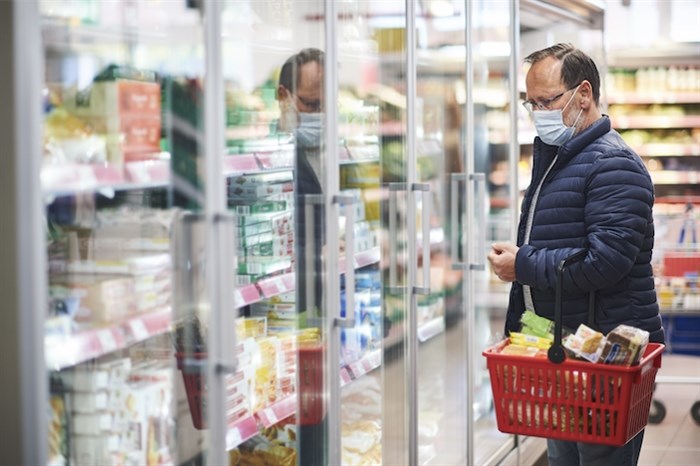
Image Credit: ADOBE STOCK
February 15, 2022 - 6:00 PM
The time is coming fast when B.C. residents will have to decide just how comfortable they are getting back to a new normal in a world where COVID is still very much with us.
Rules limiting the number of guests people can have in their homes and limits on the size of indoor and outdoor gatherings will be gone on Thursday.
“That will mean that you will make your own decisions, based on your risk and the risk in your family, of who you will have over into your home,” provincial health officer Dr. Bonnie Henry said during a news briefing today, Feb. 15.
READ MORE: Indoor dancing and socializing set to return in B.C. as COVID restrictions eased: health officials
Further reviews of public health measures will be held in mid-March than again in mid-April, in time for Easter. The main restrictions that are left, and may be removed at those times, are the need to wear masks and show vaccine passports at indoor and some outdoor spaces.
“We know that, for some people, what we’re doing today will be really fast and it will make them uncomfortable,” Dr. Henry said. “We know as well, for others, it’s not fast enough and they would like to see things go back to as if the virus was no longer here. But the reality is, this virus continues to circulate in our community and because we have such a high level of immunity through immunization, for most people, that doesn’t lead to serious illness or hospitalization.”
There’s still a fairly high risk of catching COVID if no precautions are taken.
“We have data now that shows that the booster dose not only protects us from serious illness but it also protects us from infection,” Dr. Henry said. “It’s not 100%. We have good data here, that’s being presented now, that has shown that getting that booster dose gives you an effectiveness of 60% against infection with the Omicron strain.”
The booster doses also seem to be effective against long-term COVID effects.
Still, the elderly and those with underlying health conditions or compromised immune systems may still want to take precautions, even after restrictions are eased further in the spring.
And, unvaccinated people are at a higher risk of not only getting infected with COVID but also at a higher risk of getting very sick and even dying.
“We’re moving slowly and thoughtfully and gradually getting back to the things that we all love,” Dr. Henry said.
During the same news briefing, Premier John Horgan took offence to a suggestion from a reporter that people protesting COVID restrictions might feel empowered by the easing of restrictions.
READ MORE: Arrests as RCMP clear protest near Pacific Highway border crossing in B.C.
“With respect to the restrictions that will be removed tomorrow, those were designed to be temporary,” Horgan said. “Those were designed to address the Omicron wave which we had little or no knowledge of when it arrived in December. The decision to pick this day to make this announcement, Dr. Henry and (Health) Minister (Adrian) Dix talked about this in early January. This was not brought upon by any protest, any horn honking, any encampments.”
The restrictions were always scheduled to end on Feb. 16.
Horgan also defended Dr. Henry’s decision to continue vaccine passport rules despite the fact that many other provinces are dropping them much sooner. She’s said, in the past, that they will stay in place until the end of June.
“As you know, the vaccine card uptake in British Columbia was swift and it was overwhelming,” Horgan said. “It gives people comfort when they go out into social settings, particularly seated events, that the people around them have taken the same measures to protect themselves. British Columbians have been comfortable to be outliers on a number of fronts and we’ve done so because we want to ensure that the sacrifices people have made over the past two years are not in vain.”
While the easing of restriction is positive news, it doesn’t mean the pandemic is over, Dr. Henry stressed.
“We’ve come to see how fragile our health-care system is,” she said. “I know the minister is working very hard on that to make sure that we have that capacity to be able to care for people when a surge that is inevitable does come. I do believe, knowing what I know about pandemics and how we’ve weathered them and all the scenarios that we’ve seen over the last two years, that we will see a sort of oscillating. Yes, there will be waves and troughs of COVID that are likely to have different impacts in different years, depending on how much the virus changes over time.”
Whatever the future brings, she hopes to offer suggestions and guidance on how to respond, rather than orders. That means people will have to make up their own minds on how they respond.
To contact a reporter for this story, email Rob Munro or call 250-808-0143 or email the editor. You can also submit photos, videos or news tips to the newsroom and be entered to win a monthly prize draw.
We welcome your comments and opinions on our stories but play nice. We won't censor or delete comments unless they contain off-topic statements or links, unnecessary vulgarity, false facts, spam or obviously fake profiles. If you have any concerns about what you see in comments, email the editor in the link above.
News from © iNFOnews, 2022